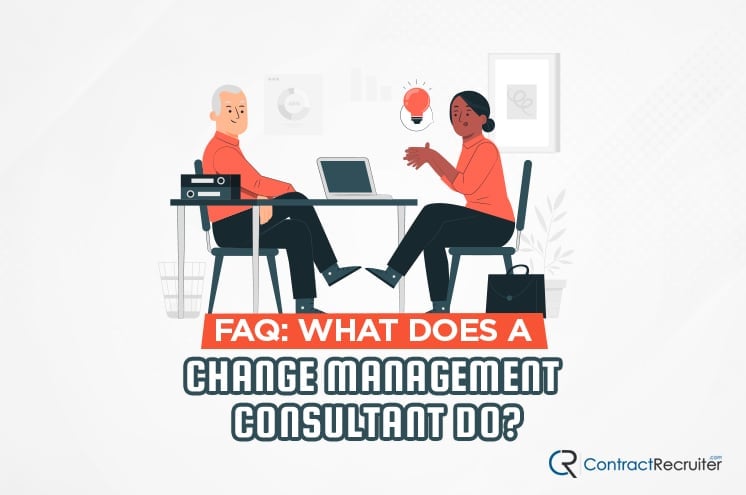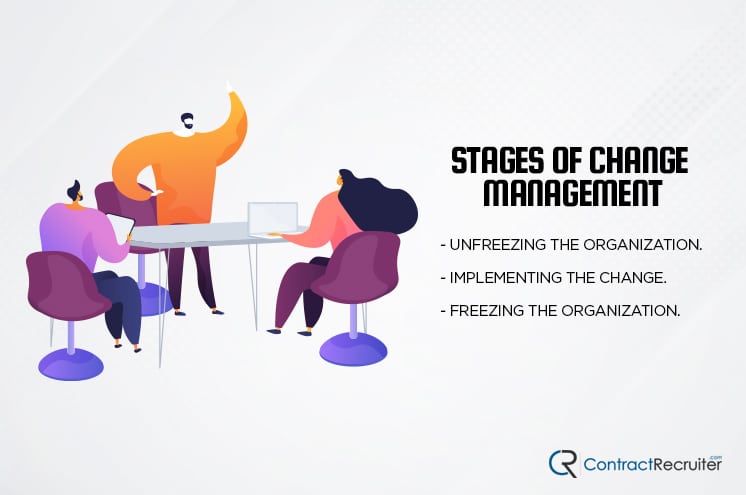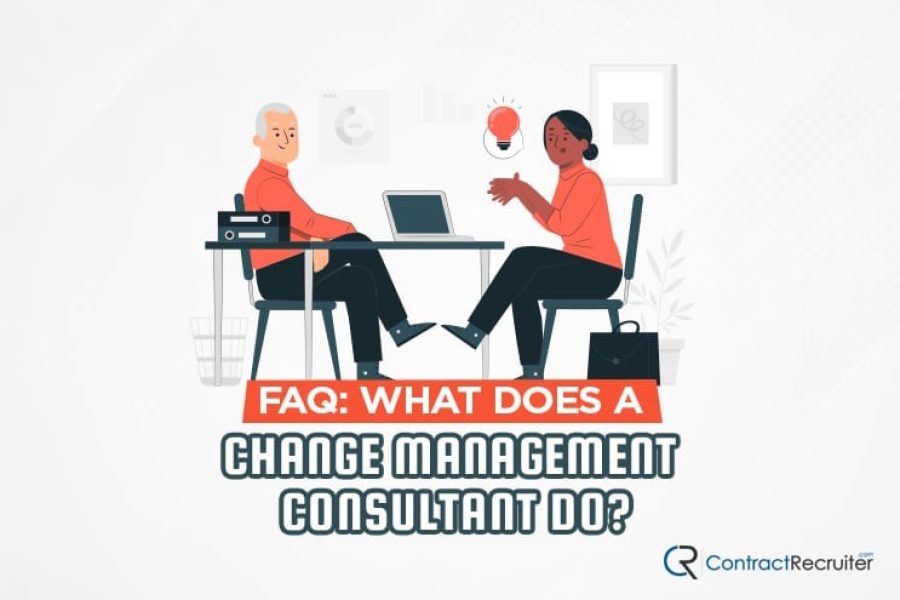

There’s a dichotomy in business. On the one hand, you have monolithic corporations that seem highly resistant to change. They stand firm, resist the influence of changing market pressures and trends, and take a very long view; they know the demand for their product will swing back around, and while they may suffer through lean times, they never entirely collapse and will always be there when the winds change.
On the other hand, you have smaller, leaner, more agile businesses. Like minnows feeding around sharks, these businesses must adapt to swiftly-changing circumstances, or die. They don’t have the resources to resist change; they need to capitalize on those changes if they want to succeed.
Change is inevitable in the economy, business, and society. Some changes are cyclical, while others are linear, but there will always be change. How your business handles change – and whether or not you change with it – is an important decision to make as a business owner.
Often, it can be difficult to see change from inside an organization. When you don’t personally have experience with the coming changes (and few people do), you don’t know how to adapt to them or how your business will react to the changes as they are implemented.
That’s where change management consulting comes in. What is change management, what do change management consultants do, and do you need one? Read on to learn more.
What is Change Management?
Significant changes to a business that affect processes, both external and internal, have a chance to fail. It may be something as simple as investing in a new technology that doesn’t catch on or as complex as changing management style, leadership goals, or social mores within the organization.


Any business that wants to implement change should also want to minimize the chances of that change failing. Change management is the system wherein businesses do their due diligence to reduce the chances of that happening.
“Change management is defined as the methods and manners in which a company describes and implements change within both its internal and external processes. This includes preparing and supporting employees, establishing the necessary steps for change, and monitoring pre- and post-change activities to ensure successful implementation.” – ASQ.
Change management is a detailed, structured process for implementing and reviewing significant changes to a business. It involves:
- Analyzing the current state of the business.
- Defining the change that needs to be made.
- Determining who the change will impact.
- Picking the people who need to buy-in and sponsor the change.
- Engaging with stakeholders and the people affected by the change.
- Developing a plan to implement the change.
- Building, promoting, and deploying a vision to encourage the change.
- Implementing the change itself.
- Monitoring the human factor throughout the transition.
- Adapting processes to the pressures of the human element.
- Modifying, looping, and iterating on the change to reach the desired new state.
- Cementing the new state as a new normal.
Depending on the size and scale of your business, you may want to handle this internally. However, many businesses do not have the perspective or resources necessary to envision these changes properly. That’s where change management consulting comes into play.
What is Change Management Consulting?
As you might expect, change management consulting is the process of outsourcing your change management to a third party.
“When companies want to implement significant changes to the operation of their business, they must take steps to ensure the process is productive. Change management consultants can assist companies through this process to ensure that they transition in an effective and efficient manner. The practice of change management consulting relies on several key components that all serve to accomplish this goal. Some of the most important components include outlining a vision, involving senior leadership, developing a change management plan, engaging stakeholders, creating supportive infrastructures, and properly measuring progress.” – Norwich University.
By bringing in an external resource, your company can better ensure a proper scope of vision, with experience in the potential repercussions of meaningful change. The end goal is always positive, whether it’s improving the company culture and your diversity and inclusivity, adopting new technology or business processes to improve efficiency or increase profits, or a restructuring brought on by a change in leadership.


Change management consultants have the usual benefits inherent in consulting and outsourcing for any business process. That is, they can bring experience in making the exact kinds of changes you’re proposing. They know the common pitfalls, areas of resistance, and details that need to be addressed. They also know how to navigate the challenges that arise as part of a transition and can preemptively solve problems they know are coming.
Every business is different, of course, and the way one business adapts to change will be different from how others adapt to the same change. However, human nature is human nature; much of the resistance and pushback will be similar across different situations.
For any significant business change to be successful, it needs buy-in from the top to push a vision of a new, better workplace. It also requires buy-in from ground-level workers who will be tangibly affected by the change and who must be convinced that the change will benefit them. The changes must be beneficial from the start, as well, and not be a change for the sake of change.
What, Specifically, Does a Change Management Consultant Do?
Change management consultants come in from an external service, either individually or as a team, and work to properly and smoothly implement changes to a business. To an extent, their duties vary depending on the change’s scale, scope, and focus. For example, changing an internal customer service process, changing a core business process, changing management structure, and changing something customer-facing will have different considerations and repercussions.
A big part of the duties of a change management consultant is understanding the scope and impact of changes. Some change management consultants use an established framework to analyze whatever change your business wants to implement. Others have specific changes they specialize in and implement them in a customized way for each business.


The duties of a change management consultant include:
- Analyzing an organization to determine its readiness to implement a change, identify roadblocks in the way of that change, and options for overcoming those roadblocks.
- Developing communications strategies and messaging to reach the people affected by the change (be it management, specific departments, lower-level workers, customers, or other groups) and convince them of the value of the change. Buy-in is critical for any change to be successful in the longer term.
- Use change adoption tools to speed up and facilitate the implementation of the changes the business wishes to implement.
- Monitor and receive feedback, adjust priorities and messaging, alter the change, and repeat in a feedback loop until the change is implemented and settled.
Any change of sufficient scope to need a change management consultant will need buy-in from senior leadership and the ground-level workers most affected by the change. One side or the other is often not enough; a change from workers without leadership buy-in is doomed to fail, and a change pushed by leadership that workers don’t adopt will fail to propagate. Thus, change management is about earning buy-in on both sides of the coin.
What Are the Stages of Change Management?
While there are several different models for change management, one of the most popular is a three-stage approach developed by Kurt Lewin in the early 1900s.


The three stages of this model are:
Unfreezing the organization.
This is the preparatory stage. In it, much of the time and energy spent by change management consultants goes into messaging, convincing stakeholders and leadership of the necessity of the change, the negative repercussions of not changing and the benefits of the change, and earning buy-in.
Many organizations are calcified in the upper echelons of leadership. Leaders often like the way things work, as demonstrable success, and are hesitant to take risks that could damage the business. Thus, part of change management involves convincing these stakeholders that the risk isn’t as significant as they fear, the rewards are tangible, and the process of implementing the change is well-trodden ground.
Implementing the change.
Change means uncertainty. Change management consultants work to implement any major change in phases, introducing elements of the change in a sensible and beneficial way. Each part of the change needs time, support, and avenues for feedback and optimization. If a change is detrimental, particularly due to unforeseen influences, an agile response from change management helps mitigate the issues before they become problems that lead to turnover, pushback, or business failure.
The implementation phase is often the longest phase of the change management process. However, it can be accelerated if the change has an established framework, is demanded by people throughout the organization, and has demonstrable benefits to everyone involved. The less well-trodden the change, the longer it will take, and the more rounds of feedback will be necessary.
Freezing the organization.
The third and final phase of change implementation is cementing the change in the organization. This phase involves monitoring and reinforcement while also resisting further unnecessary changes. The goal is to reintroduce stability to the organization, so there’s less chance of an unfocused dissolution or a regression to pre-change processes.
Once the business has returned to stability in its new form, it can push for growth and other traditional business objectives using its new framework.
Does Your Business Need a Change Management Consultant?
Change is inevitable. Nearly every business can benefit from implementing changes to its culture, business processes, or messaging.
A change management consultant is an external, third-party way to verify and implement changes in a positive way. Many companies, particularly SMBs, will find it challenging to identify the changes they need to make. Limited experience, limited scope of vision, and novelty in industry can all make it difficult to identify necessary changes. Additionally, many SMBs take an agile approach to business and may not know when to dial back and solidify particular changes as part of the core business model.
Excessive change leads to a lack of stability and increased rates of burnout. When there’s no consistency, employees spend more time adjusting to change than they do working. Change management consultants can help guide a business to a stable state.
That said, your business likely does not need to keep a change management consultant on staff and should not make changes simply for the sake of change. Changes must be deliberate, with specific goals and adaptations in mind.


If you have identified specific changes that need to be made, or if your business is in a desperate situation and losing money, hiring a change management consultant to bring it back on track and implement those changes can be an excellent idea.
On the other hand, hiring a change management consultant when you have no specific changes in mind and your business is working fine may not be beneficial. It’s still possible that changes can be valuable, but diving headlong into them without due diligence can cause more problems than they solve.
Bear in mind, as well, that not all change management is created equal. Individual consultants and small firms may not have the same experience, processes, or resources that a larger firm like McKinsey, Booz Allen, Deloitte, or Accenture can offer.
Luckily, the first step to any change management consulting is an analysis by the consulting firm to determine if a change is necessary and if it can bring value to the business. A consultation with such a firm helps you determine whether or not you can benefit significantly from a specific, tangible change. You can then do further research to determine the stakes. From there, the choice is yours.
Do you have any questions about change management consultants, or are you wondering if your business could potentially benefit from one? If so, please feel free to leave a comment down below, and we’ll get a conversation started! We’d be more than happy to answer any of your questions and assist you however possible!


